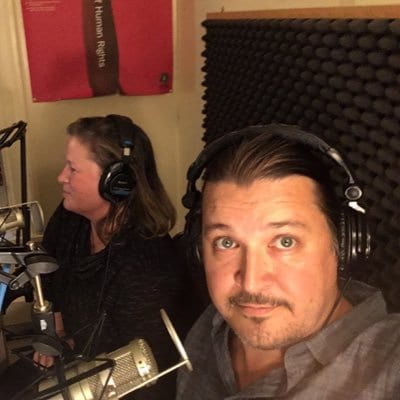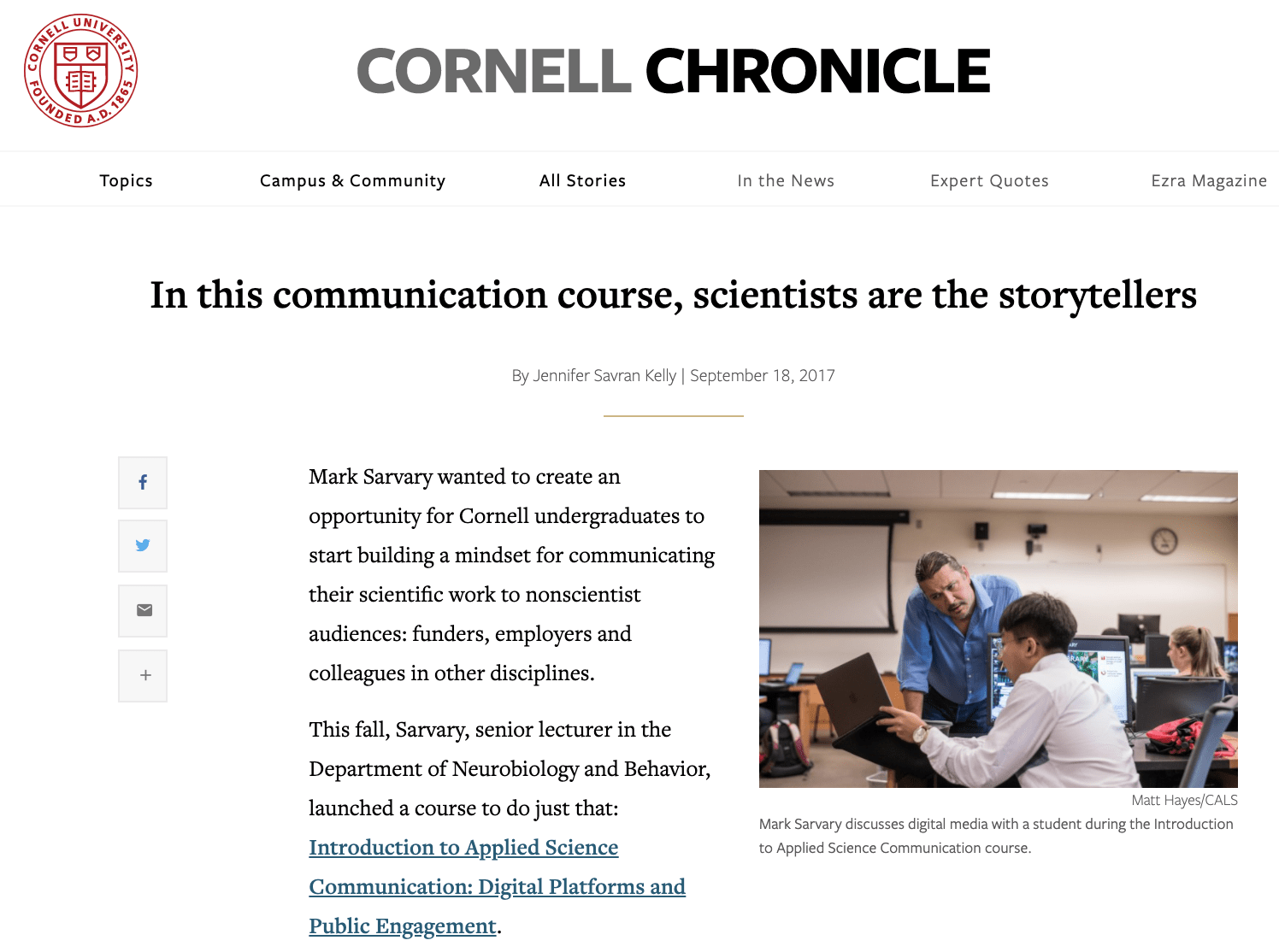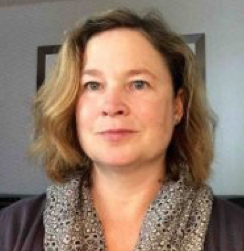It has long been said that science isn’t finished until it is communicated (Thank you, Sir Mark Walport). Science communication (engaging non-technical audiences) should not be an afterthought, rather an integrated part of the scientific process.
Sharing scientific discoveries with the publics is no longer solely the job of professional communicators, rather a skill that all scholars should have. But science communication is only impactful if it is done strategically, and is evidence-based. That is why we developed the Applied Science Communication: Digital Platforms & Public Engagement (BioG 3500) course in 2017, and this course became one of the flagship courses of the Science Communication and Public Engagement undergraduate minor we launched in 2020.
 The course fulfills the CALS written/oral expression requirement & they count towards the Science Communication and Public Engagement minor
The course fulfills the CALS written/oral expression requirement & they count towards the Science Communication and Public Engagement minor
Course Description:
Do you want to use digital platforms to reach your audience and communicate science effectively beyond conference seminars, posters, and journal articles? Learn how to create a science communication strategy to tell your story effectively! Sharing scientific discoveries with the public is no longer solely the job of professional communicators, rather a skill that all scholars should have. This course is co-taught by a biologist and a communications professional, along with guest lecturers, who will lead students through a series of hands-on experiences. Students will learn real-world examples from librarians on consuming information, evaluating evidence and contributing information to online resources, such as Wikipedia. Students will learn from local science café curators and science podcast producers about reaching the public effectively, and from scientists and communication professionals on how to build a communication strategy using modern digital platforms.
In this course, students fill their science communication “toolbox,” learning how to engage a variety of audiences including the public, journalists, and policymakers. Students will learn how to write concisely and accurately, translating dense scientific language into simpler concepts for the public. Students will complete writing assignments using a wide variety of platforms, including concise social media posts, letters to policymakers, press releases, blog posts, op-eds, and Wikipedia articles. They will produce a written communications strategy and reflect on their public engagement experience.
Students will discuss good writing examples as part of successful science communication strategies and will receive regular feedback from their peers and their instructors. Students will also demonstrate proficiency in oral communication platforms, as they will be introduced to video and radio podcast production. After gaining basic skills with these communication platforms and tools, students will apply their skills to a topic of their own research interests. Students will be exposed to local public science events and radio podcasts and learn how to create their own science café and science podcast on their own. By the end of this course, they will become more effective science communicators and skills gained in this course can be applied to any research field, and are essential for every scientist.

Mark Sarvary, Ph.D. 
Dr. Sarvary (mas245@cornell.edu) received his Master’s diplomas in ecology and in marketing in Hungary. After completing courses at the University of Minnesota in Saint Paul, MN and conducting research at the University of California in Davis, CA, he received his Ph.D. at Cornell University in 2007. He returned to Cornell in 2011 to take on a lecturer position at the Department of Neurobiology and Behavior.
As a Director of the Biology Teaching Laboratories at Cornell, he teaches information and science literacy, critical thinking, experimental design, and science communication through modules in ecology, genetics, and microbiology. As a strong advocate of science public engagement, he is a public science advisor of a local Science Café, he is a faculty advisor of the undergraduate medical and life sciences debate club and a new undergraduate podcast called State-of-the-Pod.
He supports the claim that science is not finished until it is communicated, and treats science communication as the last, and very important step of the scientific process. He teaches students how to communicate with fellow scientists and how to translate dense scientific information to non-technical audiences. In addition to teaching an Applied Science Communication Course at Cornell University and at the Shoals Marine Laboratory, he is also spearheading a new science communication undergraduate minor at Cornell. He attended the Alan Alda Center for Communicating Science boot camp and is a co-producer of a science podcast called Locally Sourced Science. As a Faculty Fellow For Engaged Scholarship at Cornell, he conducts research in biology education, science communication, and public engagement.
Kitty Gifford, M.S.
Kitty Gifford (kmg277@cornell.edu) works in the field of integrated marketing communications here in Ithaca. She helps clients with digital communications strategies using a mixture of online tools and social networking sites.
She holds an M.S. in Communications from Syracuse University, S.I. Newhouse School of Public Communications. She has worked in the industry for five years at a design and advertising agency, Communiqué Design & Marketing, serving as director of social and digital strategy. Previously she was on the project staff in the Citizen Science department at Cornell Lab of Ornithology where she launched social network platforms and fielded thousands of breeding bird biology questions.
Kitty is currently serving on the board of directors for Foodnet Meals on Wheels, is active in the Ithaca community as a founding member of the Ithaca League of Women Rollers (retired skater), and is the curator of the Science Cabaret series. She is one of the producers of the Locally Sourced Science podcast on WFRI in Ithaca.
Kitty is a native Californian and completed her undergrad degree at Humboldt State University behind the Redwood Curtain in Northern California. She majored in Biology and Environmental Science.

